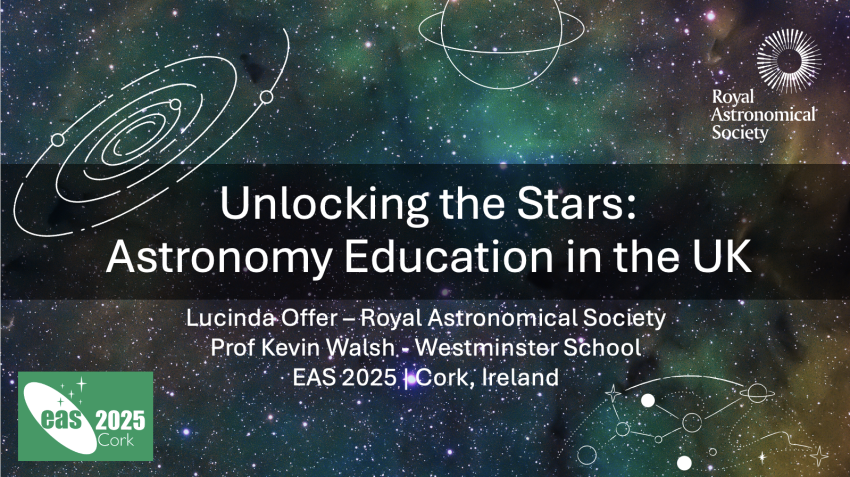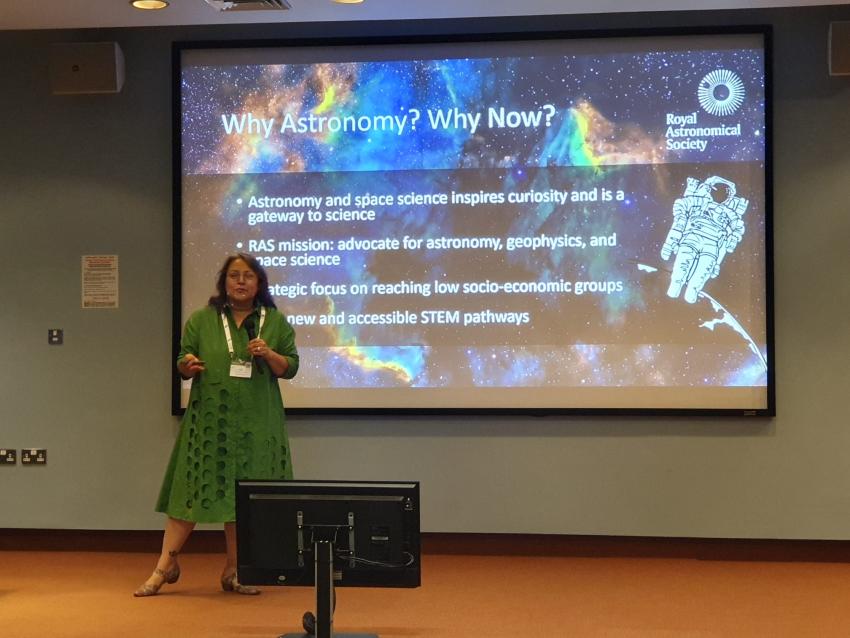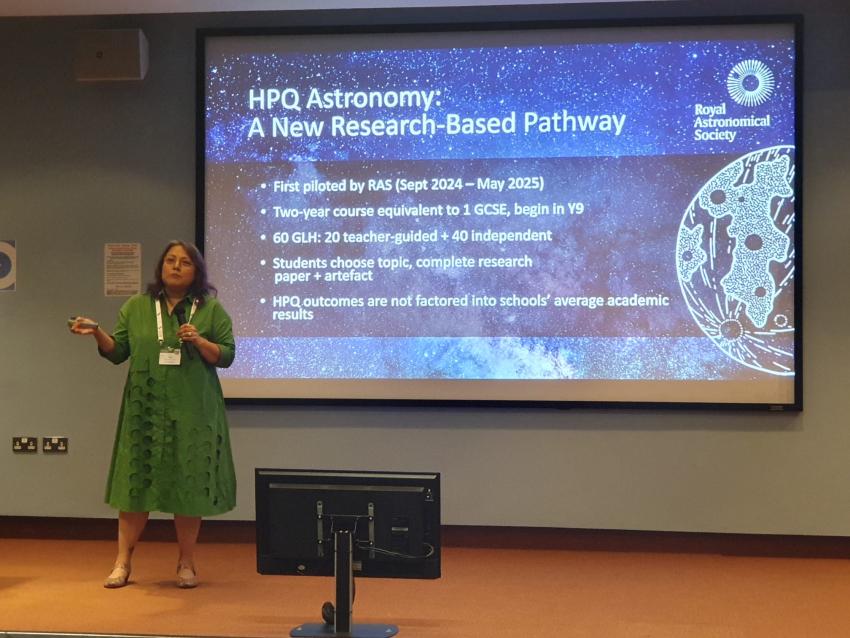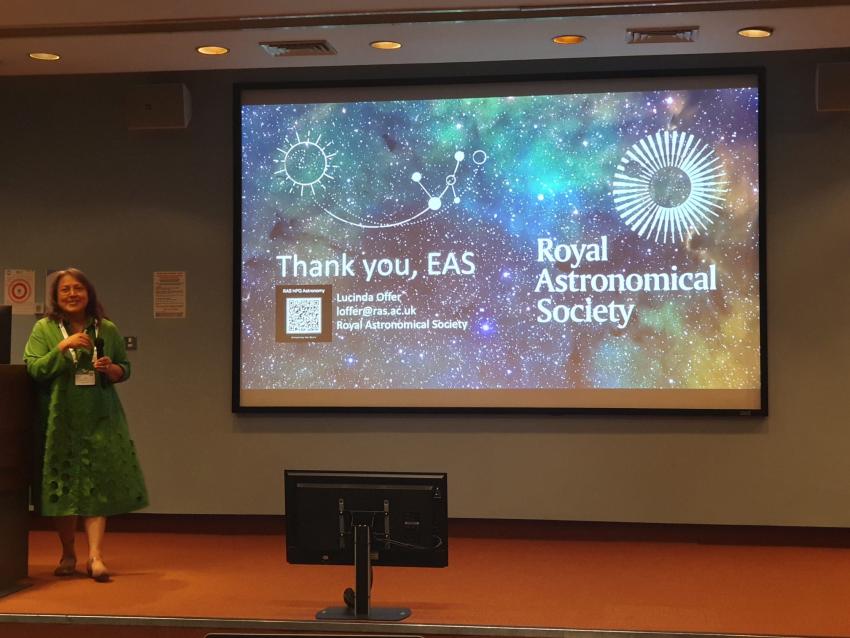The Royal Astronomical Society's (RAS) Education and Outreach Officer, Lucinda Offer, spoke at the European Astronomical Society's conference in Cork, Ireland on 23 June 2025. As part of the RAS’s commitment to widening participation in astronomy and space science, she presented a compelling update on the current state of secondary astronomy education in the UK, focusing on both GCSE and HPQ programmes taught at the Society’s headquarters at Burlington House in Piccadilly, London.
The RAS piloted the first-ever Astronomy Higher Practical Qualification (HPQ) in the UK in September 2024. The first year of the course focused on students writing a 2,500-word research paper, supported by logbooks and presentations. It has proven to be a highly successful initiative, increasing student retention from 15% in the traditional GCSE pathway to 54%.
Key Points from the Talk:
• HPQ Astronomy empowers students to take ownership of their learning. They choose an astronomy topic that genuinely interests them and develop a related artefact, such as a model, application, or tool.
• The course structure is flexible and inclusive. Students work through a set of milestones but complete the qualification at a pace suited to their schedules. This adaptability makes the programme more accessible to diverse learners.
• HPQ Astronomy fosters long-term academic and research skills. Students improve in scientific communication, critical thinking, presentation, logbook-keeping, and science vocabulary.
• Science teachers benefit too. The HPQ model enables educators to engage more deeply with astronomy, bringing new discoveries and space science into the classroom.
• Importantly, HPQ outcomes do not affect school performance metrics, unlike GCSE results. This makes the HPQ a low-risk, high-reward opportunity for schools to introduce astronomy into their curriculum.
• Student feedback has been overwhelmingly positive. Many shared that it was the first time they felt like “real scientists.” In a recent survey, 75% said they would recommend the course to others.
The Royal Astronomical Society will continue with Year Two of the HPQ Astronomy course in September 2025, during which students will complete an astronomical artefact such as a model, application, or tool. The course is co-taught by Lucinda Offer (Royal Astronomical Society) and Professor Kevin Walsh (Westminster School).
This initiative reflects the RAS’s broader strategy as a learned society and academic charity—to support underserved schools and promote deeper engagement with astronomy, geophysics, and space science. It also builds on the principles championed by UCL’s ORBYTS programme, which connects researchers with schools to carry out real scientific research. See the ORBYTS Impact Report.
For those interested in learning more or adopting the HPQ model, Pearson provides an official HPQ specification, and the RAS can provide guidance and training for interested teachers.
Please see below the resources mentioned in the talk:
Additional resources that the RAS offers:
- GCSE Astronomy at the RAS
- Useful websites for Astronomy Education
- RAS Services for Teachers
- Studying and working in Astronomy and Geophysics in the UK
- Careers booklet: Sky High and Down the Earth
Here are the slides from the presentation:
If you would like more information on teaching GCSE or HPQ Astronomy, please contact our Education and Outreach Officer, Lucinda Offer at loffer@ras.ac.uk
Join AEON – The Astronomy Education and Outreach Network
To stay connected with this growing community of astronomy educators, we invite you to join the Astronomy Education and Outreach Network (AEON). Members gain access to CPD sessions, curriculum resources, and a supportive network of peers.
Join AEON here – the Astronomy Education and Outreach Network





